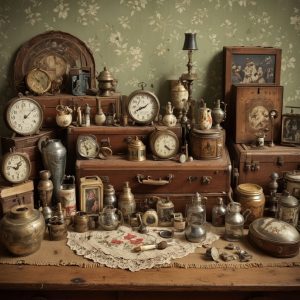
3PL Kitting Services simplify ecommerce fulfillment by combining products into ready-to-ship sets or bundles. When paired with a 3PL, they eliminate manual prep, cut costs, and boost speed and accuracy.
Order accuracy is more than a logistics metric; it builds trust and drives loyalty, positioning brands for long-term success. High picking accuracy supports a strong order accuracy rate of 98% or higher.
Cost-Effective
Custom 3PL kitting services are a valuable addition to ecommerce fulfillment operations. They streamline warehousing and assembly processes, and they also help businesses reduce operational costs. Kitting involves pre-assembling items into ready-to-ship kits, which simplifies inventory management and reduces labor costs. In addition, it helps to minimize waste and shipping costs. Ultimately, it enables companies to maximize their operational efficiency and profitability, and it allows them to provide better customer experiences.
In addition to lowering overhead costs, 3PL kitting services can also help businesses save money by reducing the number of products that are returned due to incorrect orders. This is because streamlined inventory and fulfillment processes are more likely to result in fewer mistakes, which can then translate into lower return rates. In addition, kitting can also improve a company’s reputation with customers by increasing the likelihood of repeat business.
Assembling and packaging your own product sets or bundles in-house can be expensive, time-consuming, and complicated. In addition, handling these tasks in-house can quickly bottleneck your warehouse and create significant delays in fulfilling orders.
A 3PL kitting service can eliminate the burden of these challenges, and it will save you time and money by ensuring that your products are ready to ship on the same day that they are ordered. Furthermore, your 3PL partner will have a more flexible infrastructure and resources than you can afford to build on your own.
When you choose a reliable kitting service, they will take care of the following steps in the process:
Warehouse Receiving and Inspection: The team at your 3PL will inspect components carefully to ensure they meet quality standards. They will then store and manage them according to their individual SKUs (Stock Keeping Units).
Kitting and Assembly: Your 3PL will assemble and package your orders. They will then scan and sort them for delivery to your customers, and they’ll integrate the kitted orders seamlessly into your fulfillment process. This process streamlines the picking process, reduces errors in order fulfillment, and ensures that your customers receive the right products in their boxes every time.
Time-Saving
The time-saving benefits of outsourcing kitting and assembly to a 3PL are significant. By leveraging the services of a 3PL, you eliminate the need to pay for extra warehouse space, purchase and train staff for specialized equipment, or invest in expensive inventory tracking technology.
The right 3PL will offer a variety of kitting and assembly options to meet your needs. For example, they can procure packaging materials on your behalf, potentially at lower rates due to their buying power. They can also provide inventory tracking systems that allow for real-time SKU updates, allowing you to make more accurate purchasing decisions. They can even perform rework and relabeling to update labels or add promotional stickers to existing products, saving you both time and money on warehousing and shipping costs.
Pre-assembled kits can drastically reduce order fulfillment time, speeding up shipping times and improving customer satisfaction. In addition, 3PLs can assemble and ship custom product bundles as needed, helping you to take advantage of sales opportunities, such as creating holiday gift baskets or seasonal promotions. 3PLs can also handle subscription box fulfillment, recurring kitting for monthly deliveries, and all of the necessary returns management.
Another benefit of 3PL kitting services is that it allows you to focus on other core areas of your business, leaving assembly and packaging tasks to experts who manage streamlined workflows off-site. This helps you keep your internal teams focused on executing key fulfillment activities, and also enables you to scale operations up or down as demand changes.
When looking for a 3PL to handle your kitting and assembly, find one with a track record of delivering exceptional service. Ask them how they can help you achieve your operational goals, such as by reducing shipping times or turning around orders quickly, and find out if they can handle fluctuations in demand. Look for a partner with robust inventory tracking systems that update SKUs in real-time and seamless integration with eCommerce platforms to streamline the flow of orders from online stores to fulfillment centers. Also, ensure they can handle sudden surges in demand during the holidays or a flash promotion.
Reliability
Kitting is an effective fulfillment solution for companies that sell products that require assembly or installation before they can be used. It reduces overall inventory and shipping costs by combining multiple individual items into a single package that can be shipped as one unit. It also streamlines assembly and packing processes and improves accuracy by eliminating product duplication. Kitting services can be offered as a value-added service or as part of a larger fulfillment solution.
When evaluating a 3PL provider that offers kitting and assembly, it’s important to consider their reliability. Look for a partner that has experience handling similar products and can offer references, case studies, or testimonials to demonstrate their expertise. It’s also important to choose a 3PL that can scale their kitting and assembly services as your business grows. This will ensure that your products are assembled and shipped promptly without causing any delays in the customer experience.
In addition to being reliable, 3PLs that specialize in kitting can help businesses save on overhead costs by streamlining supply chain operations and optimizing warehouse space. They can also help businesses manage inventory more effectively by purchasing and storing kitted items until they’re needed, which helps to avoid overstocking and obsolescence.
Kitting and assembly are labor-intensive activities, so it’s essential to choose a 3PL with a team of skilled, dedicated employees. A 3PL that specializes in kitting will have the processes and technology in place to ensure efficient assembly and packaging. They will also have the ability to quickly adapt to fluctuating market demand and meet sudden spikes in order volumes.
Another benefit of partnering with a 3PL that provides kitting services is that they can help your company cut down on the number of high-selling SKUs, which will make it easier for you to organize and manage inventory in your distribution center. Keeping your SKU count low will also minimize shipping costs and speed up fulfillment times.
In addition, 3PLs that specialize in kitting and assembly can help your business reduce shipping expenses by leveraging their buying power with carriers and establishing a relationship over time. This can result in significant cost savings, especially if you’re dealing with large quantities of kits that need to be shipped across the country or around the world.
Accuracy
A custom kitting partner can streamline operations to reduce error rates and ensure that orders ship with the correct parts. This is critical to building customer trust and avoiding costly returns or complaints. 3PLs have the infrastructure and expertise to handle bulk assembly and fulfillment, allowing them to deliver superior accuracy at a fraction of the cost of an in-house operation.
Aside from the obvious labor savings of reducing assembly time, kitting can also cut costs related to storage and handling. By combining multiple items into one shipment, it’s less expensive to store and manage inventory as well as minimize shipping costs by reducing size and dimensional weight. In addition, a 3PL can develop a packaging strategy that saves on materials like package fillers and tape, which add up quickly if you’re shipping large quantities of small products.
Kitting can also provide significant cost-savings through improved inventory management and data visibility. Because each item in a kit is pre-packaged, it’s easier to track inventory and make accurate purchasing decisions. This prevents over-ordering components that tie up cash and leads to stockouts that result in lost sales. Additionally, the ability to accurately forecast sales volume allows you to order just enough inventory so that you’re never out of product but don’t overstock.
Another big benefit of working with a 3PL is that they can manage all aspects of the kitting process, including assembly, quality control, labeling, and packaging. This helps ensure that each kit is ready to ship without delay and that your brand is represented in a consistent way across all channels. This is especially important if you sell in multiple countries, regions, or languages.
Whether you need a custom kitting solution for an ongoing subscription box service or to support seasonal promotions, working with a 3PL can help you scale and grow your business without getting buried in logistics. Ask potential 3PLs how they approach the assembly and kitting process to find out which solutions align best with your requirements. Ask about their systems for ensuring inventory accuracy, such as real-time SKU tracking, an




